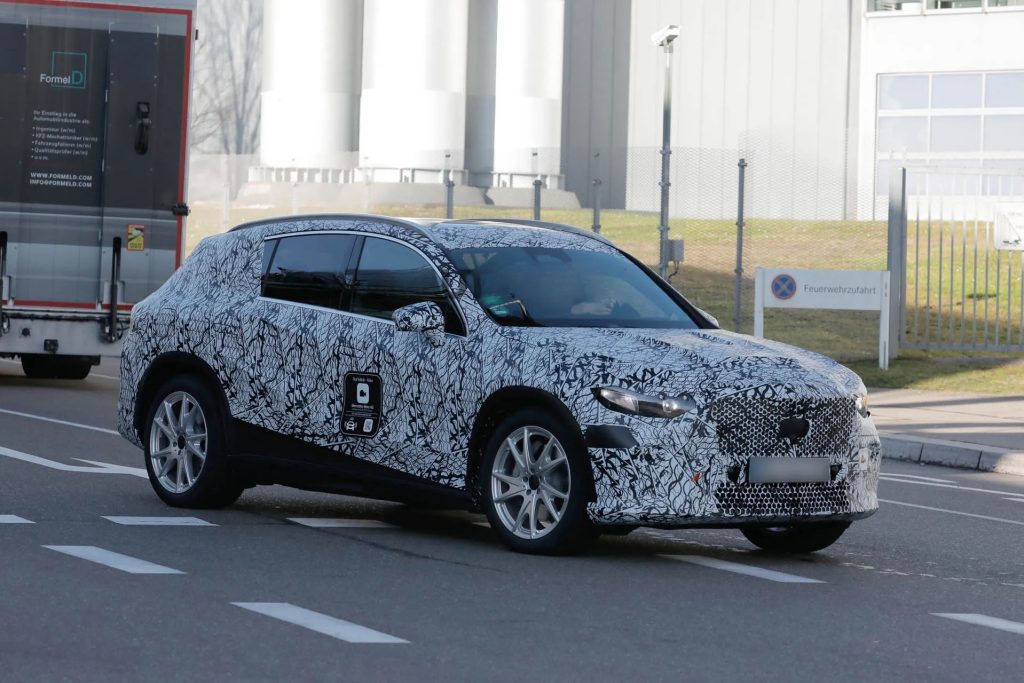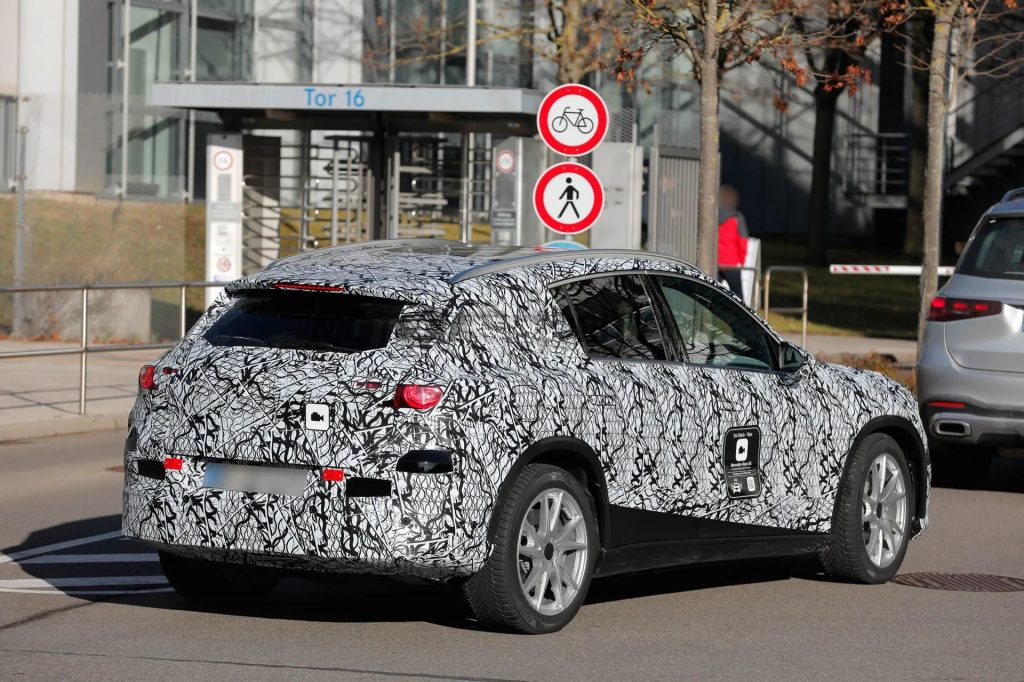Electric Mercedes-Benz GLC To Replace The EQC In 2026
Giancarlo Perlas December 4, 2024- Mercedes-Benz is gearing up to introduce a new electric GLC.
- The product is reportedly scheduled for a US launch in 2026.

The upcoming GLC EV model will succeed the EQC, the compact crossover that marked the debut of the EQ sub-brand in 2020, as part of the luxury automaker’s streamlining efforts. Unlike its predecessor built on a platform originally designed for gas-powered vehicles, the new GLC EV slated for 2026 will leverage the advanced MB.EA platform. The said architecture is specifically developed for electric vehicles.
The redesigned EV is expected to address Mercedes’ past shortcomings in its predecessor, offering competitive features such as a range exceeding 300 miles in at least one variant. The high-performance AMG version also promises to deliver better driving dynamics to align with the three-pointed star marque’s commitment to blend luxury and performance in its electric lineup.
Bold Design and Cutting-Edge Technology

Spy photos of the GLC EV reveal significant design departures from its gas-powered sibling. While the vehicles share similar dimensions, the EV boasts a sleeker roofline and a more aerodynamic front end, borrowing cues from the futuristic Vision EQXX concept. These updates not only enhance aesthetics but also improve efficiency.
Underpinning this model is the MB.EA platform, featuring an 800-volt electrical system that allows rapid charging. Drivers can expect to add up to 186 miles of range in just 10 minutes and recharge from 10% to 80% in under 22 minutes. Such capabilities place Mercedes’ upcoming EV in a competitive position within the electric crossover market.
Future Prospects for Mercedes’ EV Platforms
The GLC EV is part of Mercedes’ broader electrification strategy. The MB.EA platform will support midsize EVs, while smaller vehicles like the redesigned CLA will use the MMA platform debuting in 2025. Both platforms signal a technological leap forward, featuring high-voltage systems and hybrid compatibility where applicable.




